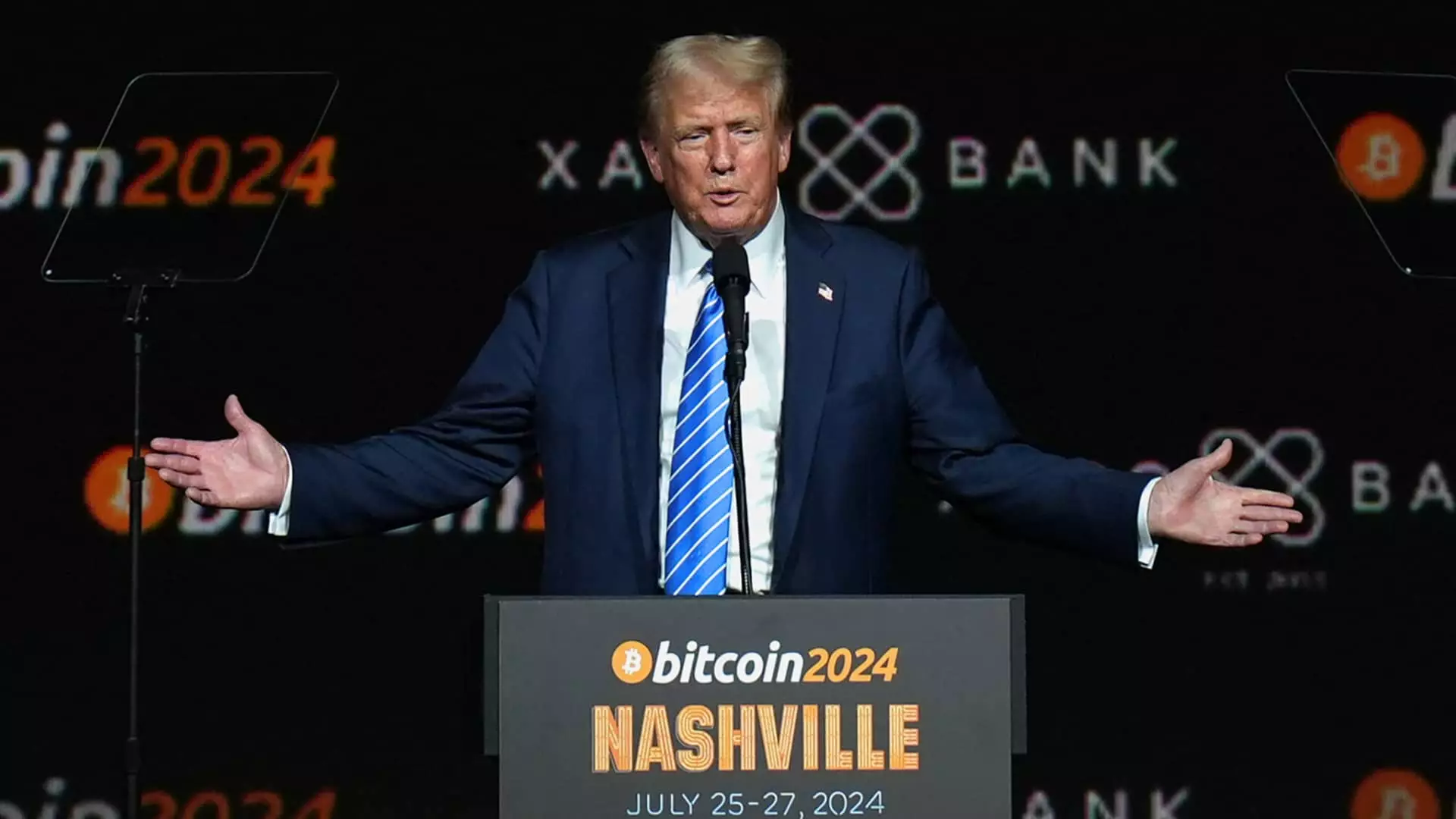In the ever-evolving landscape of cryptocurrencies, the recent launch of World Liberty Financial (WLF) has stirred considerable intrigue, primarily due to its association with former President Donald Trump. The 13-page document released by WLF outlines its mission and token allocation strategies, revealing a potential financial windfall for the Trump family. As the economic framework surrounding this venture becomes clearer, it is essential to examine its implications, intricacies, and the ethical considerations inherent in such a project.
World Liberty Financial has launched with the ambitious goal of elevating digital finance through its WLFI token. The project aims to distribute a staggering 22.5 billion tokens to the Trump family alone, translating to approximately $337.5 million at the current token price of 1.5 cents per unit. Such a substantial allocation raises questions about equity and accessibility, as the bulk of the token distribution appears heavily weighted in favor of the project’s founders, particularly those with longstanding connections to political power.
The financial prospect for the Trump family underlines a broader trend observed in crypto projects where initial token allocations favor a select group of insiders. Despite the claims that the project operates independently of political affiliations, the familial ties and apparent financial benefits invite skepticism regarding the motivations behind its framework. As potential investors evaluate WLF, it’s crucial for them to understand that the financial architecture presents a significant risk for those looking to navigate the waters of decentralized finance.
According to the freshly released document, the operational structure of World Liberty Financial is rather intriguing. A Delaware-based entity, DT Marks DEFI LLC, is poised to take home three-quarters of the project’s net protocol revenues. This encapsulates revenues from various sources such as platform use fees, advertising incomes, and other operational earnings, excluding agreed expenses.
This revenue structure is designed to primarily benefit a select group associated closely with Trump. The implications of such a heavy allocation—where the majority of profits seem directed towards individuals connected to the Trump faction—could alienate everyday users who might be drawn to the crypto project for its purported value propositions. It also casts a long shadow over the project’s transparency, prompting investors to question whether their contributions will meaningfully impact the overall ecosystem or merely line the pockets of the influential few.
Evaluation of the Founding Team
World Liberty Financial’s founding team comes with its own set of complexities. Co-founders Zachary Folkman and Chase Herro have previously engaged in ventures that raise eyebrows regarding their credibility and experience within competitive crypto markets. Folkman, noted for his involvement with the controversial Date Hotter Girls, has a checkered history in crypto development, while Herro’s earlier business, Pacer Capital, appears to have disappeared without a trace.
Moreover, Axiom Management Group—a significant player in this venture, with ties to the Trump family—adds another layer of intrigue. The agreement that allows AMG to cede some of its revenue rights to WC Digital Fi, connected to Steve Witkoff, illustrates the intertwining of personal relationships and business endeavors in the context of this cryptocurrency project. It suggests a network of influential individuals benefitting from the same financial ecosystem, potentially marginalizing the interests of ordinary investors.
In the realm of cryptocurrency, the landscape is rife with uncertainties and potential pitfalls. The announcement that Trump and his family would assume no liability for the venture raises ethical questions about accountability. While the release notes that the project aligns itself with decentralized finance principles, the pronounced involvement of political figures signals a conflation of financial and political pursuits, creating a gray area where ethics may come into question.
Furthermore, the fine print in the WLFI documentation hints that the token distribution plan may change, leaving investors in a position of vulnerability. The volatility of cryptocurrency markets entrenches this threat further, making it imperative for investors to vigilantly analyze the foundational tenets of such a project rather than simply succumbing to hype generate by celebrity association.
As World Liberty Financial attempts to carve its niche within the competitive crypto space, the documents released prompt a broader discussion about the ethics of financial responsibility in the crypto sphere. While the potential for financial gain is alluring, it is essential for investors to maintain a critical lens on motivations, risks, and the operational mechanics of the project. The intertwined lives of political figures and entrepreneurial ventures form a complex web that investors must navigate wisely. Ultimately, WLF serves as a cautionary tale that a glamorous facade often conceals intricate challenges waiting to emerge.

